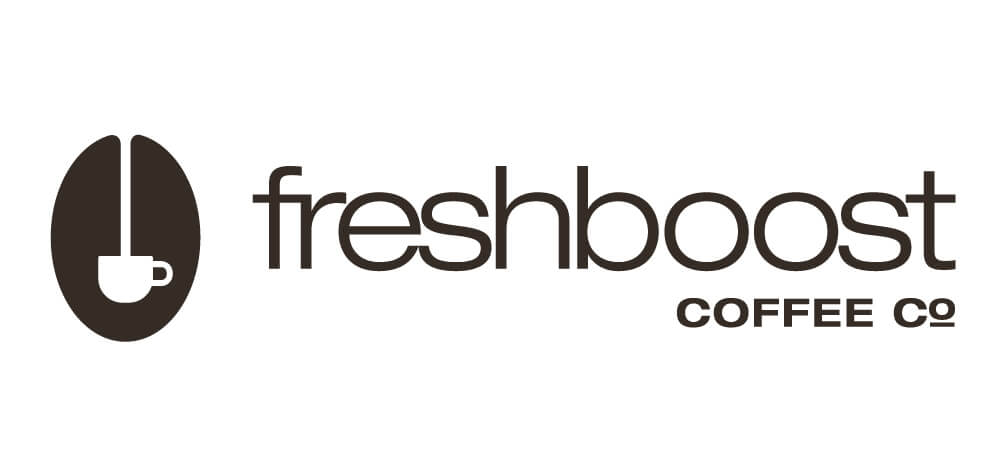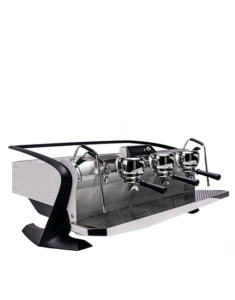Commercial Bean to Cup Coffee Machines: The Ultimate Guide for Businesses
Commercial bean to cup coffee machines are revolutionising the coffee industry, offering businesses a way to provide fresh, barista-quality coffee with the simple touch of a button. These machines are designed to grind coffee beans on demand, ensuring each cup is made with the freshest possible grounds. This gives customers a superior taste experience compared to pre-ground coffee, which can lose its flavour and aroma over time.

In busy settings such as offices, cafes, and restaurants, these automated coffee systems are essential for meeting high demand while maintaining consistent quality. They allow staff to focus on customer service rather than the intricacies of brewing espresso, with the added benefit of reducing waste and improving efficiency. The sophistication of these machines means they can be programmed to produce a variety of coffee styles, catering to individual preferences.
Key Takeaways
- Commercial bean to cup coffee machines provide convenience and quality, grinding beans freshly for each cup.
- They suit high-demand environments, allowing for consistent coffee quality without the need for barista skills.
- Owners benefit from customisable coffee options, operational efficiency, and opportunities to answer consumer queries.
Understanding Bean-to-Cup Coffee Machines

We’ll examine the various types and models of bean-to-cup coffee machines, their key features, advantages, and considerations for choosing the right machine for your business. We also compare these automated machines to traditional coffee machines to help you make an informed choice.
Types and Models
Commercial bean-to-cup coffee machines come in several types, tailored to the diverse needs of businesses. Popular brands include Franke, WMF 1500, Coffetek, and Jura, offering a range of models that cater to different volume demands and user preferences. For instance, the Franke line features advanced machines capable of producing a wide variety of coffee beverages, while the WMF 1500 is known for its balance of performance and compact size, suited for medium-sized businesses.
Key Features
The power of bean-to-cup machines lies in their key features designed for efficiency and consistency. Highlighted features typically include an intuitive touchscreen for ease of use, a built-in grinder for freshly ground beans, and automatic milk systems for lattes and cappuccinos. Many models boast an energy-saving mode, reducing costs and environmental impact. The ability to deliver espresso quality coffee at the touch of a button is a testament to their sophistication.
Benefits of Bean-to-Cup Systems
Our businesses thrive on quality and reliability. Bean-to-cup systems ensure flavor, freshness, and consistency with every cup, thanks to their precise brewing techniques. They are highly versatile, capable of creating a spectrum of coffee beverages that cater to various customer preferences. Their reliability is equally important in fast-paced environments like hotels and restaurants, where equipment downtime can be costly.
Selecting the Right Machine for Your Business
Choosing the appropriate bean-to-cup coffee machine requires a careful assessment of your business needs. Consider volume capacity, the physical space available, and the types of beverages you wish to offer. For an office coffee machine, a model with a modest footprint and simplified options might suffice. Conversely, a busier hospitality business, such as a hotel or a restaurant, may benefit from a larger, feature-rich machine.
Comparing Bean-to-Cup to Traditional Coffee Machines
Traditional coffee machines, like the La Pavoni Lever or those with an E61 group head such as the QM Alexia Evo, demand a skilled hand to operate their lever or steam wand manually. While they are revered for their capacity to craft customized espresso shots, bean-to-cup machines triumph in automation and speed. These advanced machines minimise human error, ensuring a consistent product with minimal training required, making them a compelling option for many business scenarios.
Espresso and Coffee Options

In our exploration of commercial bean-to-cup coffee machines, it is crucial to address the breadth of espresso and coffee beverages these machines can produce, along with the customisation options available to baristas and patrons alike.
Multi Beverage Versatility
Commercial bean-to-cup machines stand out for their ability to cater to a diverse range of preferences. Users can select from classic espresso shots to more complex drinks such as lattes, cappuccinos, latte macchiatos, mochas, and Americano. Moreover, the machines often include options for non-coffee drinkers, like hot chocolate. For those sensitive to caffeine, having a decaf option is also essential.
- Espresso: A robust base for beverages.
- Latte/Cappuccino: Steamed milk variants.
- Americano: Diluted espresso, similar to drip coffee.
- Latte Macchiato/Mocha: Layered drinks with milk and chocolate.
- Hot Chocolate: A non-coffee option.
Customisation Features
Bean-to-cup machines provide an array of customisation features, allowing for precision in creating the perfect cup. With PID (Proportional-Integral-Derivative) controllers, these machines offer precision temperature control, crucial for achieving the ideal flavour extraction in espresso. Users can also adjust the cup size and beverage styles to suit individual preferences, from a small, strong shot to a large, milder drink.
- Cup Size: Adjustable settings for various portions.
- Temperature Control: PID systems maintain consistency.
- Beverage Styles: Flexibility to cater to individual tastes.
Operational Considerations

When considering commercial bean to cup coffee machines for your business, it’s crucial to assess their operational aspects. A machine’s ease of use and maintenance, its capacity and throughput, and its suitability for various settings directly affect its performance and the quality of the coffee it produces.
Ease of Use and Maintenance
Commercial bean to cup coffee machines are designed with user-friendliness in mind. Ease of use is paramount, as it minimises training time for staff. The best machines offer intuitive touch screens and clear menus, ensuring that colleagues or customers can select their desired coffee without confusion. When evaluating these machines, one must consider how straightforward they are to operate and whether they support both fresh and powdered milk options to cater to different preferences.
Maintaining cleanliness and hygiene is also essential. The machines should be easy to clean, with removable components that can be washed separately. Regular cleaning not only ensures consistent coffee quality but also prolongs the life of the machine. Here’s a simple checklist for daily maintenance:
- Wipe down the machine exterior
- Clean the milk frothing components
- Descale the hot water system as necessary
- Empty and clean the drip tray
- Check the coffee bean hopper for freshness
Capacity and Throughput
For businesses where coffee demand is high, such as cafes or busy office kitchens, capacity and throughput are critical factors. The machine must handle a substantial volume of coffee beans and water and maintain a fast output rate. Some commercial-grade machines can produce hundreds of cups per day, which is ideal for heavy traffic environments.
Here’s a table indicating the capacity features to consider:
| Feature | Importance for High Usage |
|---|---|
| Bean Hopper Size | Larger for less frequent refills |
| Water Tank Capacity | Larger for continuous service |
| Speed of Coffee Preparation | Faster for minimal wait times |
Suitability for Different Settings
Commercial bean to cup machines must be versatile to be suitable for various settings, from small offices to large workplaces with numerous colleagues. In a cafe, baristas benefit from machines that offer a range of customisation options and can handle fresh milk for crafting barista-level drinks. Conversely, in an office or workplace, a machine that offers both speed and variety may be more appreciated, catering to the tastes of different colleagues while maintaining efficiency.
Consider the following settings when choosing a machine:
- Office: Prioritise speed, variety, and minimal maintenance.
- Cafe: Emphasise quality, customisation, and fresh milk capability.
- Workplace Kitchen: Look for multi-person use, robustness, and fast service.
Selecting the appropriate machine that fits the specific needs of the setting will ensure that the operation runs smoothly and that every cup of coffee is up to standard.
Purchasing and Ownership

When we consider purchasing a commercial bean to cup coffee machine, it’s vital to pay attention to the long-term investment and the reliability of both the machine and the support services.
Cost and Investment
Acquiring a commercial bean to cup coffee machine requires a substantial upfront investment, often ranging from AUD 3,000 to AUD 20,000. This cost correlates with the machine’s capacity, durability, and features. We should view this purchase as a capital investment, given the potential to increase efficiency and customer satisfaction in our café or restaurant. It is important to factor in the expected lifespan and the machine’s residual value to determine its true cost over time.
| Features | Lower Cost Options (AUD) | Higher Cost Options (AUD) |
|---|---|---|
| Basic Models | 3,000 – 5,000 | Not applicable |
| Mid-Range Models | 5,000 – 10,000 | 10,000 – 15,000 |
| Premium Models | Not applicable | 15,000 – 20,000+ |
Warranty and Servicing
Warranties for commercial coffee machines typically range from one to three years, with extensions available at an additional expense. It’s crucial for us to understand what’s covered under warranty: parts, labour, or both. Regular servicing is necessary to maintain the machine’s performance, so we need to consider ongoing maintenance costs and the accessibility of authorised service providers.
- Standard Warranty:
- 1 to 3 years (parts and labour)
- Extended Warranty:
- Available at extra cost
The Importance of Reliability and Support Services
A reliable commercial bean to cup coffee machine is essential to our business’s smooth operation. Downtime due to malfunctions can lead to lost revenue and customer dissatisfaction. Therefore, we must ensure that our chosen machine has a strong track record for reliability within the market. Support services are equally important; we must have access to responsive technical support and swift servicing. Regular updates from the manufacturer about maintenance and software also play a critical role in the machine’s long-term reliability.
- Support Checklist:
- Technical support availability
- Swift response times for servicing
- Regular maintenance and software updates from the manufacturer
Frequently Asked Questions

In the following section, we provide answers to common queries surrounding commercial bean to cup coffee machines, offering specific advice for businesses in Australia.
What criteria define the best commercial automatic coffee machines for businesses in Australia?
When assessing the best commercial automatic coffee machines, we focus on durability, capacity, speed of service, maintenance ease, and local customer support. These factors ensure machines are capable of withstanding high volumes of use characteristic of Australian businesses.
How does a fully automatic coffee machine benefit an office environment?
A fully automatic coffee machine streamlines the coffee brewing process, saving time and enhancing productivity. It also offers a variety of choices and consistent quality with minimal training required, providing a convenient perk for employees.
Is it more economical to invest in a small bean to cup coffee machine for commercial purposes?
A small bean to cup coffee machine can be more economical for commercial purposes if the expected usage is low. It minimises waste and requires less space, ensuring cost efficiency for smaller Australian establishments.
What advantages do self-serve bean to cup coffee machines offer in commercial settings?
Self-serve bean to cup coffee machines reduce the need for dedicated staff to manage the coffee station. They are user-friendly and can serve multiple people quickly, making them ideal for fast-paced commercial environments.
Can you explain the cost disparities between various types of commercial coffee machines?
The cost of commercial coffee machines varies by capacity, sophistication, and additional features such as integrated payment systems or milk frothing capabilities. Higher-end models are typically more expensive due to their advanced technology and greater longevity.
What considerations should be taken into account when selecting a used commercial coffee machine?
When selecting a used commercial coffee machine, it’s crucial to check its service history, general condition, and replacement parts availability. Ensuring there is ongoing support and warranty from the seller can prevent future issues.

